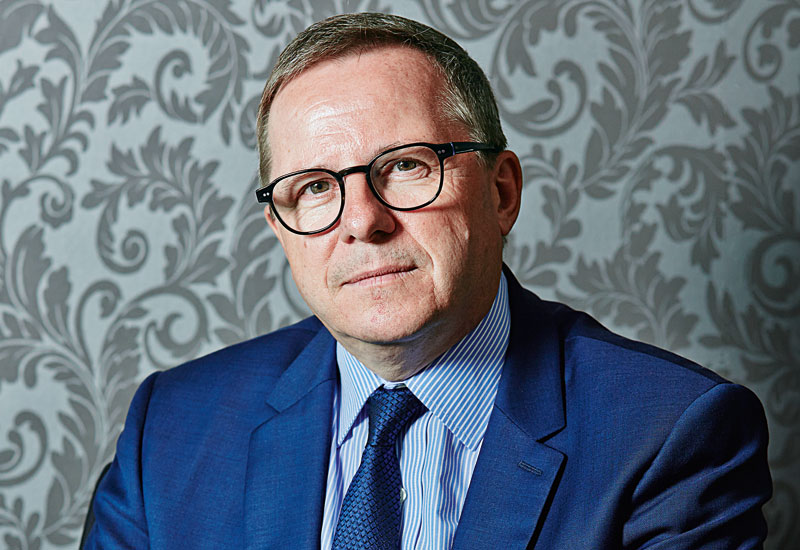 Pascal Gauvin is the chief operating office India, Middle East, Africa for InterContinental Hotels Group (IHG).
Pascal Gauvin is the chief operating office India, Middle East, Africa for InterContinental Hotels Group (IHG).
Having been in the IMEA region for over a decade, I have attended several industry and broader business and economic events; however, this year for the first time I attended the MENA chapter of the World Economic Forum. I soon realised that this would be a much more unique and profound event than any I had ever participated in.
The theme for this year’s forum was ‘Enabling a Generational Transformation’. WEF says that the transformation of the region has never been as fast and complex as it is today.
Pressure on government revenues, continued geopolitical shifts and humanitarian challenges are leading policy-makers to rethink youth empowerment in the region, diversify away from oil dependence, embrace digital advancements and formulate a response to the growing refugee crisis.

| Advertisement |
As a part of the agenda, I was invited to be a panellist on an industry-specific panel, ‘Reaping the benefits of Travel and Tourism’ alongside Lina Innab, Minister of Tourism and Antiquities of the Hashemite Kingdom of Jordan; Alain Bejjani, chief executive officer, Majid Al Futtaim Holding; Seif Ali Iddi, Second Vice-President of Zanzibar, Tanzania; and moderated by Caroline Faraj, vice-president head, Arabic Services, CNN Arabic.
The panel addressed the fact that the Middle East and North African travel and tourism industry holds tremendous potential but, requires careful consideration to ensure that the region reaps benefits from the growth, job creation, technological advancement and sustainable development associated with the industry.
The main takeaway for me was the human factor within our industry. In fact, my strongest motivation and sense of personal purpose in my role today is all about building relationships and developing people and the panel made my motivation even stronger.
I truly believe that our role as leaders in hospitality is to develop youth and give them access to the careers and success they want to accomplish. We can do this by promoting our industry to them from an early age, then by integrating them into our teams to learn and explore their interests within the industry. Finally, we must take risks and give them well-defined work streams to run independently and bring more innovative, new thinking to our industry.
During the discussion, it became apparent to each group that if the government and private sector joined hands, especially for our industry, we could enable greater youth empowerment by providing youth education, professional training and encouragement for young entrepreneurs especially in digital innovation. This in turn could facilitate positive regional branding, improved travel and tourism policies, create the right tourism infrastructure, and most importantly, bring about technological advancement to the travel and tourism sector.
I realised that the hospitality sector must diligently share responsibility for shaping the youth’s future. In fact, if every industry within the private sector joined hands with the government and shared this responsibility, in some form or the other, we can disengage the youth from negative influences and possibly reduce terrorism, or at the very least, create an environment to stimulate progress and spark youth optimism once again.
In tandem, by engaging the youth we would also be embracing disruption and fuelling the ‘Fourth’ or ‘Digital’ revolution. Today we see disruptors as an alternate, or perhaps even competitive, segment and we need to change this perspective to see how elements of disruptors can be assimilated into our business to advance our industry.
These themes continued in the following days of the forum where I met with several business partners, existing and potential, and discussed business opportunities in countries such as Morocco, Tunisia, Lebanon, Jordan, KSA and the UAE. As we explored new hotel developments and tourism markets, we also brought the hope of increased training, employment for youth and create a positive environment in their surrounding communities.
I also met with several activists and NGOs who were interested in our IHG Academy programme and brought forward amazing opportunities to collaborate for mutual benefit, and contribute to the humanitarian crises in MENA and neighbouring countries as well.
One of the sessions that I learnt a lot from was ‘Water Crisis: The Bigger Picture’. Water sustainability is an important topic in our region. Within the hospitality sector, there is a conscious effort to combat this problem, including at IHG where we have a programme called IHG Green Engage; however, as an industry we can always do more and protect the future. I met with several scientists who are exploring new solutions, some of which can be beneficial to the hospitality industry and I am keen to explore these further for IHG and for our industry.
The World Economic forum is an excellent platform for discussion, debate, learnings, and germination of solutions. The answers are not immediate, the solutions are not always clear but the collaborative thinking and efforts of governments, the private sector, think tanks, and NGOs are promising and will lead to change. We may not be able to help everyone but if we can help a few or make a small difference — we have done our share of bringing change into the future.
I believe we also need to highlight the “4th revolution evolution”, and how we should think differently about disruptors and embrace this new society. Ensuring we are surrounding in the business by Gen Y,X Z and even younger is essential to ensure that we understand and cater for our new generation of guests and maybe, very soon to come, owners.
About the Author: Pascal Gauvin is the chief operating office India, Middle East, Africa for InterContinental Hotels Group (IHG).








 Search our database of more than 2,700 industry companies
Search our database of more than 2,700 industry companies









